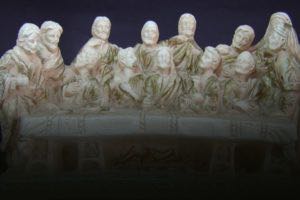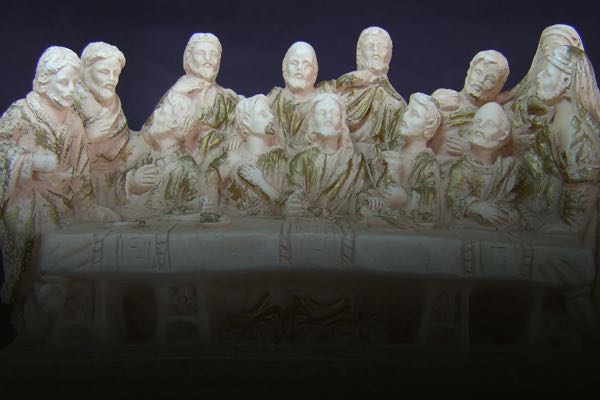
“When I was an atheist, one of the reasons I rejected the claims of the Gospels was a similar distrust in the testimony of the authors. I rejected anything supernatural, so when I simply concluded the disciples were lying about the Resurrection. But then I began to investigate conspiracies for a living as a detective. I understand, now, what is required for a successful conspiracy, and typically, there are five things that I find missing in the lives of the disciples.
The first thing you need to successfully conspire about a claim is the lowest number of co-conspirators. It’s a lot easier for two people to tell a lie and keep a secret than it is for twenty-two, or two hundred and twenty-two. Similarly, successful conspiracies are usually held for the shortest possible time. It’s a lot easier to tell a lie and keep a secret for a day than for a week, a month, or a year. Thirdly, successful conspiracies require the best possible communication between co-conspirators. If I separate two conspirators, and ask one for great detail related to the claim, the other conspirators need to know exactly what the first one said, in all its intricate detail, if they want to be consistent. That requires excellent communication between conspirators to make sure everyone knows what the others are saying. In addition, close relationships are critical. If a mother and son are involved in a conspiracy, for example, there’s a good chance no one’s going to want to talk to you at all. Finally, low pressure, very low pressure on a conspiracy is crucial. If no one’s asking any questions, there’s a much better chance for the conspiracy to succeed.
As you look at these five attributes of conspiracies, you quickly recognize that none of them are present in the alleged ‘Christian conspiracy’. According to Paul (in his letter to the Corinthian church), hundreds of people saw Jesus after the Resurrection, all on the same day. There were over one hundred eligible eyewitnesses in the upper room, for example, in Acts chapter one. There are way too many conspirators, holding the lie together for nearly six decades, separated by thousands of miles, without any way to communicate back and forth to one another, under incredible high 24 pressure. Don’t get me wrong, it’s possible to pull off a conspiracy, but only if the attributes I’ve described are present. If, for example, you know of a conspiracy, even an historic conspiracy, it wasn’t successful, by definition. Successful conspiracies are unrevealed, and the claim of a successful ‘Christian conspiracy’ is unsupported. None of the co-conspirators ever changed their story about Jesus.
It really comes down to motivation. Let me explain that. When investigating a potential lie, we have to ask: ‘Why would this person (or persons) lie?’ Lies are always driven by the same three motivations; it always comes down to money, sex, or power. If I’m trying to gain something in one of those three areas, I may be motivated to do something I should not do or say something I shouldn’t say. So, if the disciples are lying, what is motivating them to do so? Did they gain something in any of these three areas? We have no other ancient record related to the 12 apostles, for example, describing as gaining some advantage in these three areas. Instead, every ancient record we have describes them being martyred for what they said they saw. I think those two things: a lack of motive and a lack of the essential attributes of a successful conspiracy, led me, as a skeptic to conclude the claims of the apostles were not part of an elaborate conspiracy. It’s just not reasonable.” A lack of motive and a lack of the essential attributes of a successful conspiracy, led me, as a skeptic to conclude the claims of the apostles were not part of an elaborate conspiracy. Share on X
This brief answer was modified from my interview with Bobby Conway. To learn more and watch many other short answers to difficult questions, please visit the One-Minute Apologist website.

J. Warner Wallace is a Dateline featured Cold-Case Detective, Senior Fellow at the Colson Center for Christian Worldview, Adj. Professor of Christian Apologetics at Talbot School of Theology, Biola University, author of Cold-Case Christianity, God’s Crime Scene, and Forensic Faith, and creator of the Case Makers Academy for kids.
Subscribe to J. Warner’s Daily Email
J. Warner Wallace is a Dateline featured cold-case homicide detective, popular national speaker and best-selling author. He continues to consult on cold-case investigations while serving as a Senior Fellow at the Colson Center for Christian Worldview. He is also an Adj. Professor of Christian Apologetics at Talbot School of Theology, Biola University, and a faculty member at Summit Ministries. He holds a BA in Design (from CSULB), an MA in Architecture (from UCLA), and an MA in Theological Studies (from Gateway Seminary).
































